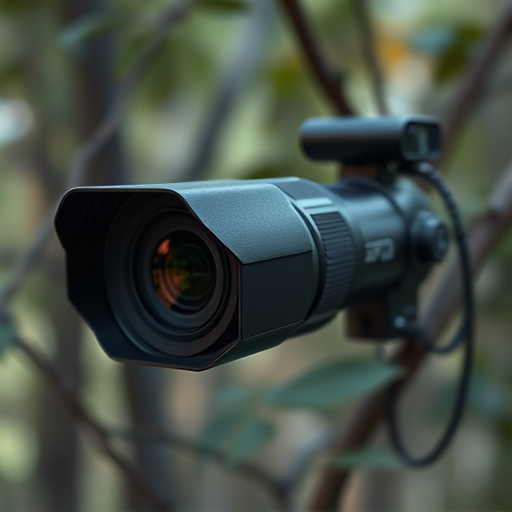Mini spy cameras, advanced with infrared technology for nighttime recording, are valuable tools for landlords monitoring rentals but raise significant privacy concerns for tenants. Discreetly placed, these cameras can capture activities in complete darkness, prompting renters to be vigilant and regularly inspect properties for hidden spots. The ethical deployment of mini spy cameras requires balancing security needs with tenant privacy rights, with informed consent crucial to avoid potential legal issues.
In today’s digital age, privacy concerns are more pertinent than ever. For renters, understanding the potential for secret surveillance spots within their homes is crucial. This article explores the use of mini spy cameras and their remarkable nighttime recording capabilities, guiding you through identifying hidden spots in rental properties. We delve into legal considerations and ethical implications, ensuring you’re aware of your rights and responsibilities when it comes to these sophisticated devices.
- Understanding Mini Spy Cameras and Nighttime Recording Capabilities
- Identifying Potential Secret Surveillance Spots in Rental Properties
- Legal Considerations and Ethical Implications of Using Hidden Cameras in Rentals
Understanding Mini Spy Cameras and Nighttime Recording Capabilities
Mini Spy Cameras, also known as hidden cameras, have evolved significantly in recent years, particularly in their nighttime recording capabilities. These compact devices are designed to be unobtrusive, making them ideal for rental properties where tenants might not be aware of their presence. With advanced infrared technology, mini spy cameras can now capture clear images and videos even in complete darkness, providing landlords with valuable evidence should any issues arise.
The nighttime recording feature is particularly useful due to the increased risk of property damage or unauthorized access during quieter hours. These cameras can discreetly monitor activities, ensuring that tenants adhere to rental agreements and maintaining a safe living environment for everyone involved. Their small size allows them to be placed in various hidden locations, further enhancing their effectiveness as a preventative measure.
Identifying Potential Secret Surveillance Spots in Rental Properties
When renting a property, it’s essential to be aware of potential privacy concerns, especially with the rise of advanced surveillance technology. Tenants should learn to identify hidden spots where mini spy cameras might be installed, as these devices can capture nighttime recordings and personal activities without notice. Common areas like smoke detectors, ceiling fans, or even seemingly innocent decorative items could double as surreptitious observation points.
Regular inspections around the property, paying close attention to these areas, can help you stay vigilant. Look for any unusual hardware, cables, or blinking lights that might indicate the presence of hidden cameras. Additionally, checking the room for signs of tampering or unauthorized access, such as broken seals or odd markings, could reveal a covert surveillance setup. Being proactive and informed is key to protecting your privacy in a rental setting.
Legal Considerations and Ethical Implications of Using Hidden Cameras in Rentals
The use of hidden cameras, such as mini spy cams, in rental properties raises significant legal and ethical considerations. In many jurisdictions, landlords are allowed to install surveillance equipment for security purposes, but these practices must adhere to strict guidelines. One key aspect is ensuring that tenants are informed about the presence of cameras, especially during nighttime recording, as concealed surveillance devices can easily invade privacy if not properly disclosed.
Ethically, balancing security needs with tenant rights is a delicate matter. While landlords may have valid concerns regarding property safety and maintenance, the widespread use of mini spy cams could foster an environment of distrust between tenants and owners. It’s crucial to respect individual privacy and only deploy such devices as a last resort when necessary for legal, documented reasons, like preventing damage or theft.
In light of the above discussions, it’s clear that while Mini Spy Cameras with nighttime recording capabilities can serve as valuable tools for property owners, there are significant legal and ethical considerations to keep in mind. Understanding potential secret surveillance spots in rental properties is essential, but these devices should only be used responsibly and within the bounds of the law. Balancing security needs with tenant privacy rights is crucial, ensuring a harmonious relationship between landlords and tenants.
